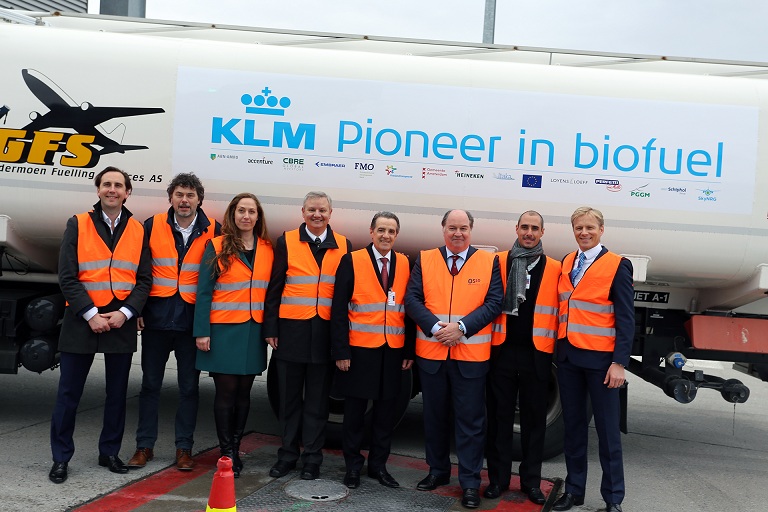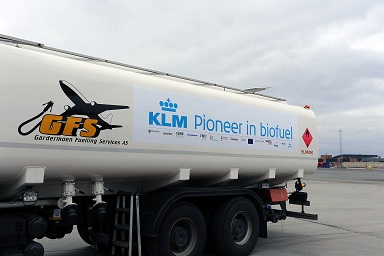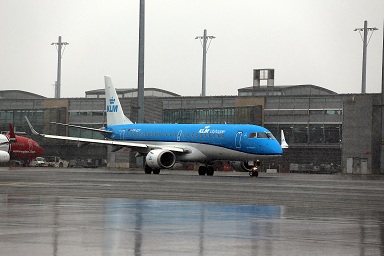For the next five to six weeks, one of KLM Cityhopper’s E190s flying from Oslo to Amsterdam is powered by biofuel produced from camelina plant oil. Some 80 flights are measuring the operating efficiency of the aircraft and its GE CF34 engines using the alternate fuel that fully complies with the European Commission’s Renewable Energy Directive.
Embraer has been working with industry partners and airlines for years to advance biofuel production. This particular project was organized in association with AirBP, SkyNRG and ITAKA, (the Initiative Towards Sustainable Kerosene for Aviation) a consortium dedicated to producing and testing sustainable biofuel for the airline industry.
KLM has been leading biofuel awareness in the aviation community and has its own Corporate Biofuel Programme. The airline intends to reduce CO2 emissions by 20% per passenger by 2020 compared to 2011 levels by renewing its fleet, improving operating efficiency and, of course, using sustainable biofuel. For example, the E175s that KLM has recently acquired will generate 18% fewer CO2 emissions compared to the Fokker 70s that the airline is gradually replacing.

Mr. Boet Kreiken, Managing Director for KLM Cityhopper (3rd from right), stated that “KLM believes that sustainable biofuel is important for the airline industry. For this reason, we have for some time been cooperating with different partners, including those united within the scope of the KLM Corporate Biofuel Programme, to stimulate the development of the market. Our new cooperative relationship with Embraer and Oslo Airport (Avinor) serves to underscore just how important this is.”


As the flight test program started, Mr. Jorge Ramos, President of Embraer Europe, explained that “Embraer has been directly involved in several initiatives and partnerships for research and development of biofuels for aviation. These are flagship flights with KLM as they represent the first initiative Embraer has developed with aviation biofuels on regular flights. We will use the Oslo to Amsterdam E190 biofuel flights to gather data and assess the performance of the engines using a percentage of jet biofuel in comparison with fossil-based kerosene.”

